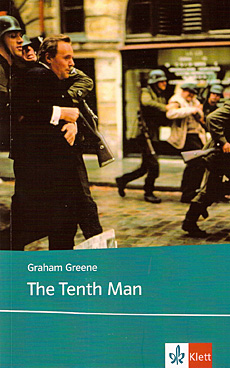4. Cultural-historical
Setting of
the novel
A concise description of the cultural scene in France during and after World War II
- 1940 defeat of France by German troops and division of the country
consequences:
a national humiliation; a confrontation of the French people with an unavoidable choice
1. Some writers
fled to spend the remaining years of the war in exile or with the Free
French Forces 1).
2. Some, convinced
that art could remain aloof from politics, moved directly into collaboration
trying to carry on as individuals and as writers.
3. Others
joined the military, as well as the intellectual, resistance.
- 1941: German attack on the Soviet Union
consequences
1. The French Communist Party gained considerably and organized opposition to Fascism.
2. The conviction was strengthened that intellectuals could not remain politically uncommitted, for the war made choices crucial for the individual.
- After 1945: Existentialism depicted man alone in a godless universe
consequences:
1. Individuals were regarded as free to determine themselves through such choices.
2. A pessimistic
mood characterized the early post-war years reflected in Jean-Paul
Sartre´s philosophy of existentialism.
Man is adrift
in a vacuum for the world is 'absurd' and irrational, without any guideposts.
He cannot know his origin or destiny but only knows that he exists and
is free to make choices. Only by commitment to a cause (engagement ),
he can give his life meaning.
Albert Camus, Sartre´s rival, broke with him over political and
philosophical issues.

Graham Greene, The Tenth Man
INFORMATIVE ITEMS
1.
Plot (synopsis)
2.
History of the Novel
3.
Evaluation
4. Cultural-historical Setting of the novel
As an agnostic humanist Camus insisted that even in an absurd world commitment must be based on clear ethical principles:
the need to resist
any oppressor and to respect the common humanity of all men. An example
is his novel La Peste (1947), an allegory set in a city haunted by the
plague, which gave universal dimensions to the treatment of the time.
It´s a symbolical description of the fight against an epidemic in Oran
by characters whose significance lies not so much in the uncertain success
with which they fight the plague than in their firm belief in human
dignity and fraternity 2).
Camus' writings,
which were chiefly focused on the isolation of man in an alien universe,
the alienation of the individual from himself, the problem of evil,
and the finality of death, were an accurate reflection of the estrangement
and disillusionment of the intellectual classes after the war. ______________________________________
1. Led by General Charles de Gaulle the Free French Forces
tried to continue warfare against the Germans after the military collapse
of France in 1940.
2. Some literary scholars point out that this novel is an allegorical
description of the situation of France during the German Occupation.
Contact: info@new-english-readers.de
